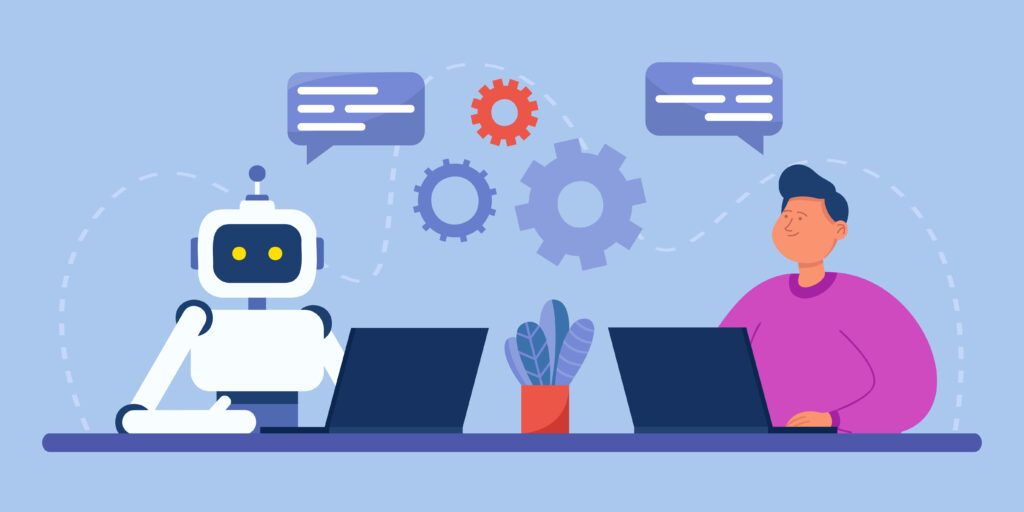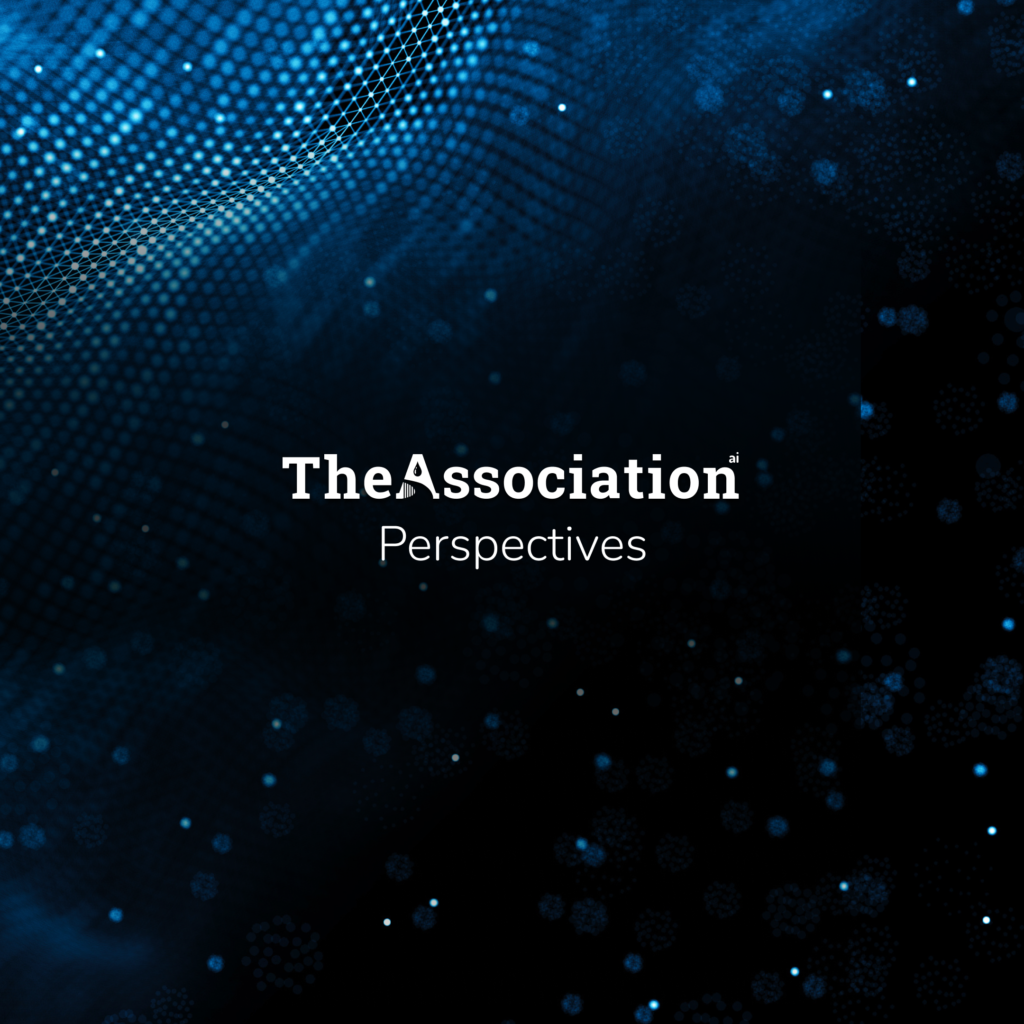
A Small Business Owner’s AI Adoption Story
The AI hype cycle has undeniably taken over the world, permeating deep and wide into almost granular levels in various industries and sectors.
I first realized the widespread impact of AI when my husband—who owns a small-sized electric service company—brought up AI questions at our dinner table, which my 12-year-old son answered. It became evident that AI had reached a point, with more than 50% (I made it up) of businesses worldwide either piloting AI strategies or embracing AI-driven ideas and solutions.
The questions surrounding AI were no longer abstract but rather practical and urgent.
Business owners and top management were not just curious about what AI could do for them but were actively seeking answers to crucial questions.
How much does it cost to implement the right AI tool? Where are the reliable tools in the markets? Obviously, we don’t trust just any tools; but how can I prepare my business for AI readiness? How efficient could AI be in helping achieve my business goals, and perhaps most importantly, what risks and compliance challenges would AI introduce?
In this journey, I found myself deeply engaged, not just professionally but personally as well, alongside my husband.
As we delved deeper into at least a minimum viable understanding of AI, in marketing, targeting customers on social media, service model, and business process automation, back-office, pricing, and cost reduction. We realized that integrating AI capabilities into our business operations wasn’t just about adopting a new technology; it was about fundamentally reshaping our business models.
With great promise came great responsibility. We couldn’t ignore the risks and compliance challenges that the AI system introduced.
Do we just plug in all our customer data into these AI tools? What if the recommendation takes advantage of vulnerable people and marginalized groups? What if the price favors one group over the other? How shall we stay informed on what the AI output may give me biased and unfair recommendations?
How do we manage the AI system so it complies with our privacy policy, regulation, and law? How do we monitor the performance of the system over time from now to after a year, to avoid misleading and manipulations? How do we get the assurance that the AI system is implemented ethically and responsibly so the automated processes and decision makings can continuously drive positive impacts?
One of the early steps we took was to invest in AI education and training for our leaders’ crew, thanks to the Australian State government offering free courses about AI to small to medium sized businesses. Empowering the business owners and management to be able to make informed decisions, advocate human-centered AI, and mitigate the potential commercial, regulatory, and reputational risks.
As we know, misconduct in an AI initiative that although began as a technical advancement, can become a costly mistake that materialized for the organization. As we integrated AI tools and features into various aspects of our business, from customer service chatbots to predictive maintenance algorithms for our equipment, we witnessed tangible benefits: operational efficiency improved, customer experiences became more personalized and reduced waste, cost, and better-managed risks.
Of course, the journey wasn’t complete without its challenges. The ROI is not always clear and calculated, and it takes time to build up the trust, navigating through ethical, legal, and regulatory responsibilities.
As business owners or line of decision-makers, we should know and understand our obligations, including the traditional full range of consumer, privacy, anti-discrimination, WHS, intellectual property, and any other laws that apply to the industry that the business operates in. The more we engage in the right way at the right time with the people and communities who might be impacted by the AI systems, the better we understand the concerns and expectations that may point to a risk or issue.
It is important to build trust and confidence with customers and stakeholders, regulators, in the business’s use of AI, with additional care, control, monitoring, and audit required.
In conclusion, the transformative power of AI is undeniable, yet its responsible and human-centric deployment requires a collective effort. It calls for collaboration among AI suppliers, business owners, and regulatory bodies to ensure that AI serves humanity ethically and responsibly.
Together, through open dialogue, collaboration, and shared responsibility, we can harness the full potential of AI for the benefit of society. Let us work hand in hand to build a better future for us.
Here is the oath from TheAssociation.AI:
As a member of TheAssociation, I solemnly pledge to uphold the following principles and responsibilities in my role as an AI practitioner.
Lead Stewardship of Our AI Futures
I acknowledge my position on the frontline of AI implementation and the profound responsibility that comes with it.
I commit to stewardship of the development, deployment, and operations of AI technologies in a manner that prioritizes the well-being of individuals, our communities, the environment, and society as a whole.
I will strive to ensure (within my power) that the AI systems I am involved with are designed and used in ways that are beneficial, fair, and aligned with ethical values.
Apply Practical Skills and Expertise
I pledge to apply my skills and expertise to ensure a high-quality and ethical AI future for all.
I will adhere to best practices in data management, model development, and system deployment, always keeping in mind the potential impacts on individuals, our societies and environment.
I will work to mitigate biases, promote transparency and to ensure the robustness and reliability of the AI systems I contribute to.
Bridge Disciplines for Holistic Approaches
I recognize that the successful development and implementation of trustworthy AI requires collaboration across disciplines.
I commit to actively seeking out and engaging with experts from diverse fields, including (but not limited to) data, ethics, privacy, legal, robotics, and security.
By working together and integrating our knowledge, we can develop holistic approaches that address the complex challenges posed by AI.
Unify Our Voices and Engage With Regulators and Technology Vendors
I recognize that the successful development and implementation of trustworthy AI requires collaboration across disciplines.
I commit to actively seeking out and engaging with experts from diverse fields, including (but not limited to) data, ethics, privacy, legal, robotics, and security.
By working together and integrating our knowledge, we can develop holistic approaches that address the complex challenges posed by AI.
Commit to Ongoing Education and Knowledge Sharing
I commit to continuous learning and upskilling to stay at the forefront of AI advancements.
I will actively seek out educational opportunities and to share my knowledge with others in the TheAssociation community.
By unlocking our collective expertise and experiences, we can amplify our impact and drive innovation in a responsible and ethical manner.
Mentorship and Nurturing of the Next Generation
I recognize my role in shaping the future of AI not only through my own work but also by inspiring and guiding the next generation of practitioners.
I pledge to serve as a mentor, offering guidance, support, and opportunities to those entering our field.
By fostering a culture of collaboration, inclusivity, and ethical leadership, we can ensure a bright future for AI and the professionals who will drive its evolution.
As a member of TheAssociation, I commit to upholding these principles and responsibilities to the best of my ability.
I understand that my actions and decisions as an AI practitioner have far-reaching consequences, and I will strive to always act with integrity, empathy, and a deep sense of responsibility to society.




